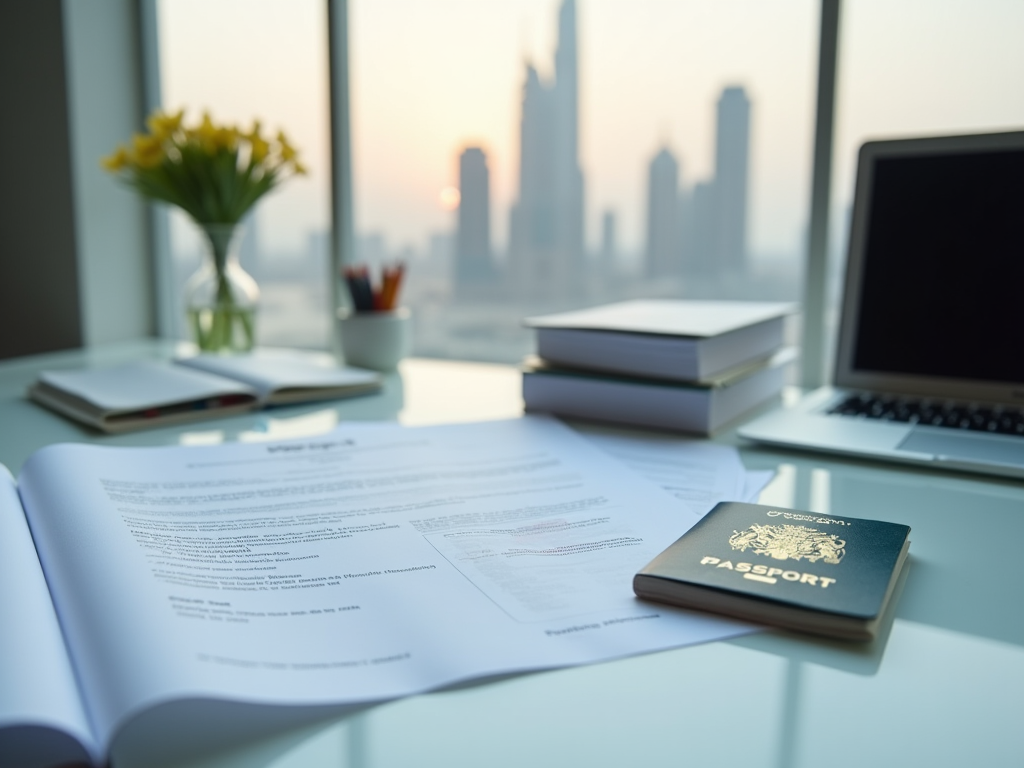Starting an import-export business in Dubai can be a lucrative venture, given the city’s strategic location and robust trading environment. To legally operate such a business, obtaining an import-export license is essential; this license ensures compliance with local regulations and facilitates smooth trade operations. It’s important to consider the Dubai business license cost as part of your planning, as the cost can vary depending on the type of license and the business activity. Below, we will delve into the steps required to secure this vital license, the types of licenses available, and important considerations for your business.
The Basics of Import-Export Licensing in Dubai

Dubai, as a global trade hub, requires that businesses abide by specific licensing regulations. The Department of Economic Development (DED) is the primary body overseeing the issuance of business licenses in Dubai. Import and export licenses allow businesses to engage in international trade while ensuring compliance with local laws. There are primarily two types of licenses for import-export businesses: the Import License and the Export License. Depending on the nature of your products, you may require both licenses.
To begin the licensing process, you must identify your business’s trade name and ensure it complies with local naming conventions. Once you have a name, you can proceed with registering your business with the DED. This registration includes the submission of several documents, which are crucial for acquiring your import-export license. The following steps outline the general procedure:
Acquiring your import-export business license in Dubai involves several stages, each crucial to ensure you meet regulatory requirements. Here’s a numbered list of steps to guide you through the process:
- Determine Business Activities: Define the specific commodities you plan to import or export, as this will influence your licensing requirements.
- Register Your Business Name: Choose a unique and appropriate name for your business that adheres to the UAE’s naming guidelines.
- Apply for Initial Approval: Submit your application with required documents to the DED for initial approval.
- Gather Necessary Documentation: Prepare documents such as a copy of your passport, residency visa, and lease agreement for your business premises.
- Obtain Import-Export License: Pay the necessary fees and receive your import-export license once all criteria are met.
Each step is crucial and requires attention to detail to ensure that all paperwork is submitted correctly. Delays can result in additional costs or complications when starting your business operation.
Key Documents Required for Licensing

Proper documentation is essential when applying for an import-export license. You must ensure that all documents you submit are accurate and complete. The primary documents required include:
- Copy of the business owner’s passport and residency visa.
- Trade name reservation certificate from the DED.
- Initial approval certificate from the DED.
- Tenancy contract for your business location.
- Detailed business plan outlining company operations and market strategies.
- Customs documentation, if applicable, based on the goods you will handle.
Having all these documents in place not only speeds up the licensing process but also showcases your professionalism to potential partners and clients. Be sure to stay updated on any additional requirements that might pertain to your specific goods or services.
Cost Factors for Import-Export Licensing
The costs associated with obtaining an import-export business license can vary significantly based on various factors, such as business type, product classifications, and additional permits required. Generally, you should budget for the following:
- Business registration fees with the DED.
- License issuance fees.
- Costs related to obtaining customs permits or additional licenses for regulated goods.
- Legal consultation fees, if you engage professional services.
- Tenancy or office space rent, as you must have a physical location for your business.
It’s essential to account for these costs early in your planning process to ensure that your business remains financially viable. Creating a comprehensive budget will assist in avoiding unexpected expenses that could hinder your operations.
Conclusion
Launching an import-export business in Dubai requires understanding the procedures for obtaining the necessary licenses. By following the outlined steps, gathering the required documentation, and budgeting for costs, you can set the foundation for a successful venture in one of the world’s leading trade hubs. As you navigate this process, maintaining transparency and staying compliant with local laws will be paramount to your business success.
Frequently Asked Questions
1. How long does it take to get an import-export business license in Dubai?
The timeframe can vary depending on the completeness of your application and the complexity of your business. Generally, it can take anywhere from a few days to a couple of weeks, assuming all documents are in order.
2. Can I apply for the import-export license online?
Yes, you can initiate the process online via the DED’s official website, allowing for more efficiency in gathering necessary approvals.
3. Are there specific products that require special permits for import-export in Dubai?
Yes, certain categories such as pharmaceuticals, chemicals, and other regulated items require specific approvals and permits from additional regulatory authorities.
4. Do I need a local sponsor to start an import-export business in Dubai?
Yes, if you are setting up a business outside of the Free Zones, a local sponsor is required to hold the majority ownership of the business.
5. Is it necessary to have a physical office location for an import-export business in Dubai?
A physical office space is generally required for business registration and licensing purposes, though you can consider Free Zone options where specific regulations may differ.





